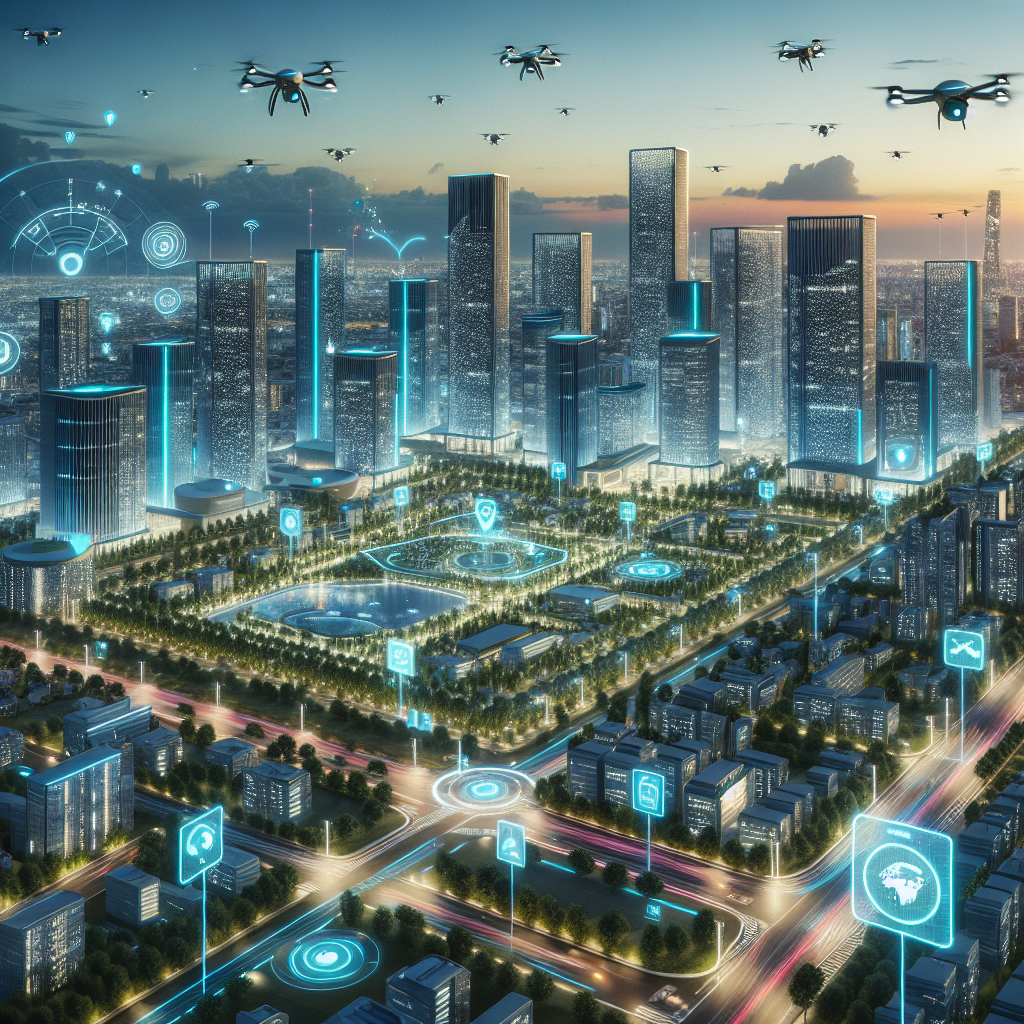In recent years, the concept of smart cities has gained momentum as urban areas around the world seek innovative solutions to improve quality of life, promote sustainability, and enhance overall livability. One of the key drivers behind the development of smart cities is the integration of artificial intelligence (AI) technologies to streamline processes, increase efficiency, and enhance the overall urban experience for residents and visitors alike.
AI-powered smart cities leverage advanced technologies such as machine learning, data analytics, and Internet of Things (IoT) devices to collect and analyze vast amounts of data in real-time. This data is then used to optimize various city functions, ranging from transportation and energy management to waste disposal and public safety.
Enhancing Livability in Smart Cities
One of the primary goals of AI-powered smart cities is to improve the quality of life for residents by creating more efficient and sustainable urban environments. By harnessing the power of AI, cities can streamline services, reduce energy consumption, and enhance overall accessibility for all residents.
Transportation is a key area where AI technologies are making a significant impact on smart cities. By utilizing real-time data from sensors and traffic cameras, AI-powered systems can optimize traffic flow, reduce congestion, and improve public transportation services. This not only saves time for residents but also reduces carbon emissions and improves air quality in urban areas.
In addition to transportation, AI-powered smart cities are also focusing on improving public safety and emergency response. By analyzing data from various sources, such as surveillance cameras, social media feeds, and emergency calls, AI systems can detect patterns and anomalies to help law enforcement agencies respond more effectively to incidents and prevent crime.
Furthermore, AI technologies are being used to enhance sustainability in smart cities by optimizing energy use, reducing waste, and promoting renewable energy sources. By analyzing data on energy consumption patterns, AI systems can help cities reduce their carbon footprint and lower energy costs, ultimately leading to a more sustainable and environmentally friendly urban environment.
Challenges and Considerations
While the potential benefits of AI-powered smart cities are vast, there are also challenges and considerations that need to be addressed in order to ensure their successful implementation. One of the main concerns is the issue of data privacy and security, as the collection and analysis of vast amounts of personal data raise important ethical questions about how this information is used and protected.
Another challenge is the need for robust infrastructure and connectivity to support the deployment of AI technologies in smart cities. This includes reliable high-speed internet access, advanced sensor networks, and secure data storage solutions to ensure that data can be collected, analyzed, and shared in real-time.
Furthermore, there is a need for strong governance and regulation to guide the development of AI-powered smart cities and ensure that these technologies are used ethically and responsibly. This includes establishing clear guidelines for data collection and usage, as well as mechanisms for accountability and transparency in decision-making processes.
FAQs
Q: How can AI technologies improve transportation in smart cities?
A: AI-powered systems can optimize traffic flow, reduce congestion, and improve public transportation services by analyzing real-time data from sensors and traffic cameras to make informed decisions about route planning and scheduling.
Q: What are some examples of AI applications in smart cities?
A: Some examples of AI applications in smart cities include predictive maintenance of infrastructure, energy management systems, and smart grid technologies that optimize energy consumption and reduce costs.
Q: What are some of the potential risks associated with AI-powered smart cities?
A: Some potential risks include concerns about data privacy and security, as well as the potential for bias and discrimination in AI algorithms if not properly calibrated and monitored.
In conclusion, AI-powered smart cities have the potential to transform urban environments and enhance livability and sustainability for residents and visitors. By leveraging advanced technologies such as AI, machine learning, and IoT devices, cities can optimize various functions, improve transportation, enhance public safety, and promote sustainability. However, challenges such as data privacy, infrastructure, and governance need to be addressed in order to ensure the successful implementation of AI technologies in smart cities.

